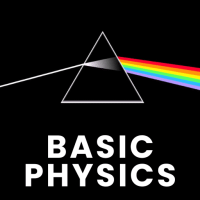Physics Exam > Physics Questions > Show that acceleration is invariant under Gal...
Start Learning for Free
Show that acceleration is invariant under Galilean transformation?
Most Upvoted Answer
Show that acceleration is invariant under Galilean transformation?
Show that acceleration is invariant under Galilean transformations
Community Answer
Show that acceleration is invariant under Galilean transformation?
Introduction:
The Galilean transformation is a set of equations that relate the space and time coordinates of an event as observed in one inertial reference frame to the coordinates of the same event as observed in another inertial reference frame. In this context, we want to show that acceleration is invariant under Galilean transformation.
Galilean Transformation:
The Galilean transformation equations are given by:
- x' = x - vt
- y' = y
- z' = z
- t' = t
Definition of Acceleration:
Acceleration is defined as the rate of change of velocity with respect to time. Mathematically, it is given by:
- a = dv/dt
Proof:
To show that acceleration is invariant under Galilean transformation, we need to demonstrate that the value of acceleration remains the same in both reference frames.
Step 1: Velocity Transformation
Using the Galilean transformation equations, we can express the velocity in the primed frame (v') in terms of the velocity in the unprimed frame (v):
- v' = v - u
Step 2: Differentiation of Velocity Transformation
Differentiating the velocity transformation equation with respect to time, we get:
- a' = dv'/dt = dv/dt - du/dt
Step 3: Invariance of Acceleration
Now, let's consider the acceleration in the unprimed frame (a). Since acceleration is the rate of change of velocity with respect to time, we can write:
- a = dv/dt
Step 4: Final Comparison
Comparing the expressions for a' and a, we have:
- a' = a - du/dt
Conclusion:
From the above comparison, we can conclude that the acceleration in the primed frame (a') is equal to the acceleration in the unprimed frame (a) minus the rate of change of the relative velocity between the two frames (du/dt). Therefore, acceleration is invariant under Galilean transformation.
The Galilean transformation is a set of equations that relate the space and time coordinates of an event as observed in one inertial reference frame to the coordinates of the same event as observed in another inertial reference frame. In this context, we want to show that acceleration is invariant under Galilean transformation.
Galilean Transformation:
The Galilean transformation equations are given by:
- x' = x - vt
- y' = y
- z' = z
- t' = t
Definition of Acceleration:
Acceleration is defined as the rate of change of velocity with respect to time. Mathematically, it is given by:
- a = dv/dt
Proof:
To show that acceleration is invariant under Galilean transformation, we need to demonstrate that the value of acceleration remains the same in both reference frames.
Step 1: Velocity Transformation
Using the Galilean transformation equations, we can express the velocity in the primed frame (v') in terms of the velocity in the unprimed frame (v):
- v' = v - u
Step 2: Differentiation of Velocity Transformation
Differentiating the velocity transformation equation with respect to time, we get:
- a' = dv'/dt = dv/dt - du/dt
Step 3: Invariance of Acceleration
Now, let's consider the acceleration in the unprimed frame (a). Since acceleration is the rate of change of velocity with respect to time, we can write:
- a = dv/dt
Step 4: Final Comparison
Comparing the expressions for a' and a, we have:
- a' = a - du/dt
Conclusion:
From the above comparison, we can conclude that the acceleration in the primed frame (a') is equal to the acceleration in the unprimed frame (a) minus the rate of change of the relative velocity between the two frames (du/dt). Therefore, acceleration is invariant under Galilean transformation.

|
Explore Courses for Physics exam
|

|
Question Description
Show that acceleration is invariant under Galilean transformation? for Physics 2025 is part of Physics preparation. The Question and answers have been prepared according to the Physics exam syllabus. Information about Show that acceleration is invariant under Galilean transformation? covers all topics & solutions for Physics 2025 Exam. Find important definitions, questions, meanings, examples, exercises and tests below for Show that acceleration is invariant under Galilean transformation?.
Show that acceleration is invariant under Galilean transformation? for Physics 2025 is part of Physics preparation. The Question and answers have been prepared according to the Physics exam syllabus. Information about Show that acceleration is invariant under Galilean transformation? covers all topics & solutions for Physics 2025 Exam. Find important definitions, questions, meanings, examples, exercises and tests below for Show that acceleration is invariant under Galilean transformation?.
Solutions for Show that acceleration is invariant under Galilean transformation? in English & in Hindi are available as part of our courses for Physics.
Download more important topics, notes, lectures and mock test series for Physics Exam by signing up for free.
Here you can find the meaning of Show that acceleration is invariant under Galilean transformation? defined & explained in the simplest way possible. Besides giving the explanation of
Show that acceleration is invariant under Galilean transformation?, a detailed solution for Show that acceleration is invariant under Galilean transformation? has been provided alongside types of Show that acceleration is invariant under Galilean transformation? theory, EduRev gives you an
ample number of questions to practice Show that acceleration is invariant under Galilean transformation? tests, examples and also practice Physics tests.

|
Explore Courses for Physics exam
|

|
Signup for Free!
Signup to see your scores go up within 7 days! Learn & Practice with 1000+ FREE Notes, Videos & Tests.


















